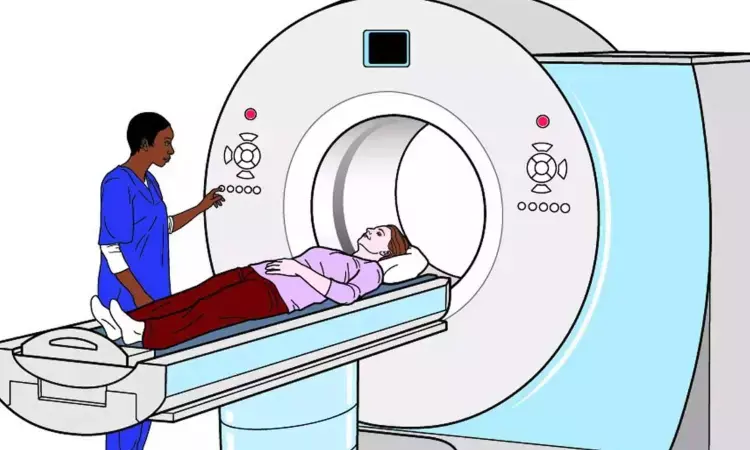- Home
- Medical news & Guidelines
- Anesthesiology
- Cardiology and CTVS
- Critical Care
- Dentistry
- Dermatology
- Diabetes and Endocrinology
- ENT
- Gastroenterology
- Medicine
- Nephrology
- Neurology
- Obstretics-Gynaecology
- Oncology
- Ophthalmology
- Orthopaedics
- Pediatrics-Neonatology
- Psychiatry
- Pulmonology
- Radiology
- Surgery
- Urology
- Laboratory Medicine
- Diet
- Nursing
- Paramedical
- Physiotherapy
- Health news
- Fact Check
- Bone Health Fact Check
- Brain Health Fact Check
- Cancer Related Fact Check
- Child Care Fact Check
- Dental and oral health fact check
- Diabetes and metabolic health fact check
- Diet and Nutrition Fact Check
- Eye and ENT Care Fact Check
- Fitness fact check
- Gut health fact check
- Heart health fact check
- Kidney health fact check
- Medical education fact check
- Men's health fact check
- Respiratory fact check
- Skin and hair care fact check
- Vaccine and Immunization fact check
- Women's health fact check
- AYUSH
- State News
- Andaman and Nicobar Islands
- Andhra Pradesh
- Arunachal Pradesh
- Assam
- Bihar
- Chandigarh
- Chattisgarh
- Dadra and Nagar Haveli
- Daman and Diu
- Delhi
- Goa
- Gujarat
- Haryana
- Himachal Pradesh
- Jammu & Kashmir
- Jharkhand
- Karnataka
- Kerala
- Ladakh
- Lakshadweep
- Madhya Pradesh
- Maharashtra
- Manipur
- Meghalaya
- Mizoram
- Nagaland
- Odisha
- Puducherry
- Punjab
- Rajasthan
- Sikkim
- Tamil Nadu
- Telangana
- Tripura
- Uttar Pradesh
- Uttrakhand
- West Bengal
- Medical Education
- Industry
Is repeated use of MRI contrast agents containing gadolinium safe? Study shed light

USA: A recent study published in Scientific Reports has raised questions about the safety of contrast agents containing gadolinium, used in around 50% of MRI (magnetic resonance imaging) scans.
The particles used for enhancing MRI scans were found in rodents and human specimens in a study that used electron microscopy to detect them. The study's researchers discovered that tiny particles of gadolinium, a rare earth metal, can infiltrate kidney cells, potentially leading to side effects. Gadolinium is typically bound tightly to chelating molecules in MRI contrast agents, easing their elimination via the kidneys. The researchers, however, found that some particles can leach out and build up in tissues.
"MRI contrast agents are not physiologically inert," the researchers wrote. "The long-term safety of these synthetic metal–ligand complexes should be studied further, especially with repeated use."
The active ingredient in these contrast agents is gadolinium, non-physiologic lanthanide metal. The leitmotifs of MRI contrast agent-induced complications vary from potentially fatal gadolinium encephalopathy, acute kidney injury, symptoms linked with gadolinium exposure (SAGE)/gadolinium deposition disease, and irreversible systemic fibrosis. There is no information on the mechanisms of MRI contrast agent-induced diseases.
Joshua DeAguero from the University of New Mexico Health Science Center, Albuquerque, NM, USA, and colleagues conducted the studies to characterize the composition of intracellular gadolinium-rich minerals that form following systemic MRI contrast agent treatment.
The team provided a detailed atlas of electron microscopic analyses of renal damage from MRI contrast agents with the characterization of gadolinium-rich nanoparticles that form from dechelation and complexation with physiologic elements.
Kidneys (mouse and human) were assessed. Mice were treated with an MRI contrast agent. The team obtained human kidney tissues from contrast-naïve and MRI contrast agent-treated patients and analyzed them.
The study revealed the following:
- Systemic treatment with MRI contrast agents leads to electron-dense intracellular precipitation within the renal tubular epithelium and interstitial cells in males and females.
- The formation of spiculated nanoparticles is similar to what has been reported to form from gadolinium oxide (Gd2O3) in phagolysosomal simulated solutions (There were no differences in pathology between the sexes).
The team showed that MRI contrast agent treatment resulted in unilamellar vesicles and mitochondriopathy in the renal epithelium. Electron-dense intracellular precipitates and the outer rim of lipid droplets were rich in phosphorus and gadolinium.
The findings indicate that gadolinium is dechelated from the formulations of MRI contrast agents in vivo and is metabolized into mineralized intracellular nanoparticles. The high phosphorus concentrations suggest nanoparticles contain insoluble GdPO4 or a more heterogenous/complex mineral.
The researchers concluded, "gadolinium is not a physiologic element. It is reasonable to assume that systemic fibrosis, iatrogenic kidney injury, SAGE, and dermal plaques are all part of the spectrum of disorders resulting from the retention of a toxic lanthanide metal."
"Nanotoxicity is a mediator of MRI contrast agent complications. Susceptibility to complications may be explained by differential decomposition of MRI contrast agents," they wrote.
Reference:
DeAguero, J., Howard, T., Kusewitt, D. et al. The onset of rare earth metallosis begins with renal gadolinium-rich nanoparticles from magnetic resonance imaging contrast agent exposure. Sci Rep 13, 2025 (2023). https://doi.org/10.1038/s41598-023-28666-1
Dr Kamal Kant Kohli-MBBS, DTCD- a chest specialist with more than 30 years of practice and a flair for writing clinical articles, Dr Kamal Kant Kohli joined Medical Dialogues as a Chief Editor of Medical News. Besides writing articles, as an editor, he proofreads and verifies all the medical content published on Medical Dialogues including those coming from journals, studies,medical conferences,guidelines etc. Email: drkohli@medicaldialogues.in. Contact no. 011-43720751


